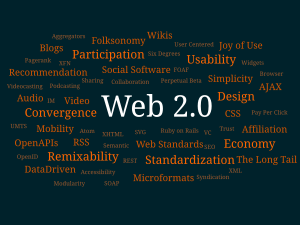 Image via Wikipedia
Image via WikipediaSo, who were the first people to try and take events online?
Were they events people who saw the opportunities to extend the life and reach of their existing physical events by publishing the content online and using communication tools to enable a dialogue between visitors and vendors? Or, were they developers who could see that, by pulling together a series of publishing and communication tools and putting it behind a user interface that effectively linked the physical and online worlds in the minds of the exhibitors and visitors, it was possible to 'recreate' an event online?
Either way, we are now in a rapidly developing market where the content owner/publisher has an impressive array of virtual events platforms to choose from. These platforms have a range of user interfaces, communication tools, content delivery and archiving options, functionality modules and detailed reporting capabilities, but are we all being a little blinkered in our approach?
The best quality of interaction will always be in person, face to face. Virtual events will only ever come a distant second in this regard. So virtual events need to offer advantages to compensate for this fact. These compensations are generally considered to be:
1. Extending life.
2. Extending reach.
3. Lower investment (lower risk/better ROI).
4. Lower carbon footprint.
Is that enough? Many would say a resounding 'yes', but I believe there is also a huge opportunity to offer a much better visitor experience online.
Regardless of the origin of a platform's design, most providers tend to offer a solution that takes a number of the limitations of a physical event and replicate it online. For example, why should every visitor be presented with the same exhibition? Why can't the virtual event recognise me, look at my preferences in my registration details, and deliver me a customised experience so that the stands/booths of the vendors that are most likely to have products and services that are going to help me, are presented to me 'front and centre'? Why not use tag clouds that can 'hover' over a stand/booth to give me an instant indicator of what is being discussed with that vendor? Features like this benefit the visitor and cannot be replicated in the physical world. Let's use them to demonstrate the full potential of taking the best of the web and the best of events and using them with the single minded goal of producing the best visitor experience possible.
As we all know, get the customer experience right and everything else will follow.

